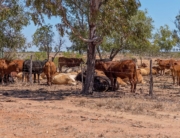Qualified Opportunity Zones Designated
The Treasury and the IRS have designated Qualified Opportunity Zones in 15 states and three territories. Private investments in these specific Qualified Opportunity Zones get preferential tax treatment under the Tax Cuts and Jobs Act of 2017.
The Qualified Opportunity Zones program encourages long-term investment and job creation in low-income areas of the state, by allowing investors to re-invest unrealized capital gains in designated census tracts. The state of Missouri submitted 161 Opportunity Zones to the federal government for inclusion in the program. These locations were determined by the state.
The Missouri Qualified Opportunity Zones are located in Bolivar, Branson, Butler County, Cameron, Cape Girardeau, Columbia, Dallas County, Excelsior Springs, Hannibal, Independence, Jackson County, Jefferson City, Jennings, Joplin, Kansas City, Kennett, Kirksville, Laclede County, Lafayette County, Lebanon, Maryville, Mexico, Monett, Montgomery County, Neosho, New Madrid County, Newton County, Pemiscot County, Potosi, Pulaski County, Randolph County, Ripley County, Saline County, Sikeston, Springfield, St. Joseph, St. Louis, St. Louis County, Sugar Creek, Sullivan County, Sunrise Beach, Warren County, Warrensburg, Warsaw, Wayne County, and West Plains.
To determine which zones were nominated, Missouri relied extensively on local input. Local governments were asked to nominate areas for inclusion in the program by sending a written proposal to the Missouri Department of Economic Development (DED).
The communities prioritized their selections and provided DED with information about development plans, and descriptions of recent and future investments. In addition to local recommendations, the state considered the Opportunity Zone’s potential to address need and generate investment impact.
Qualified Opportunity Zone Tax Benefits
Investors in Qualified Opportunity Zones can defer tax on any prior gains until no later than December 31, 2026, as long as they work with their Missouri tax accountant to make sure the gain is invested in a Qualified Opportunity Fund. A Qualified Opportunity Fund is an investment vehicle organized to make investments in Qualified Opportunity Zones. In addition, after holding the Qualified Opportunity Fund investment for at least 10 years, the investor’s basis increases to the fair market value of investment on the date it is sold.
Qualified Opportunity Zones are defined as low-income communities that include population census tracts with a poverty rate of at least 20%, metropolitan area census tracts with median family income of at most 80% of the greater of the metropolitan area median income or statewide median income, or non-metropolitan census tracts with median family income that is at most 80% of statewide median family income. This can be up to 85% for areas in “high migration” rural counties.
Qualified Opportunity Funds must invest 90% of their pooled capital in Qualified Opportunity Zone Property which is generally tangible property used in certain Qualified Opportunity Zone businesses, or stock or partnership interests in entities engaged in certain Qualified Opportunity Zone businesses.
Qualified Opportunity Funds are a way for investors to put significant sources of capital to work for economic development and realize attractive capital returns.
If you have any questions about whether an area you’re considering making an investment is within a Qualified Opportunity Zone eligible for tax benefits, please consult your Missouri Financial Accounting expert in our office.






